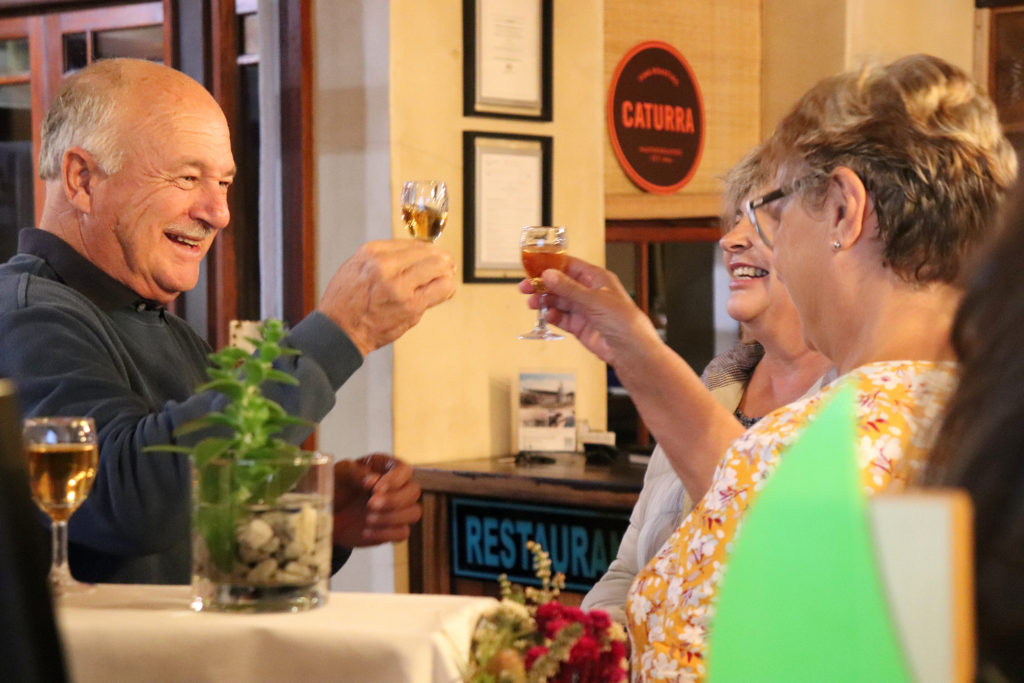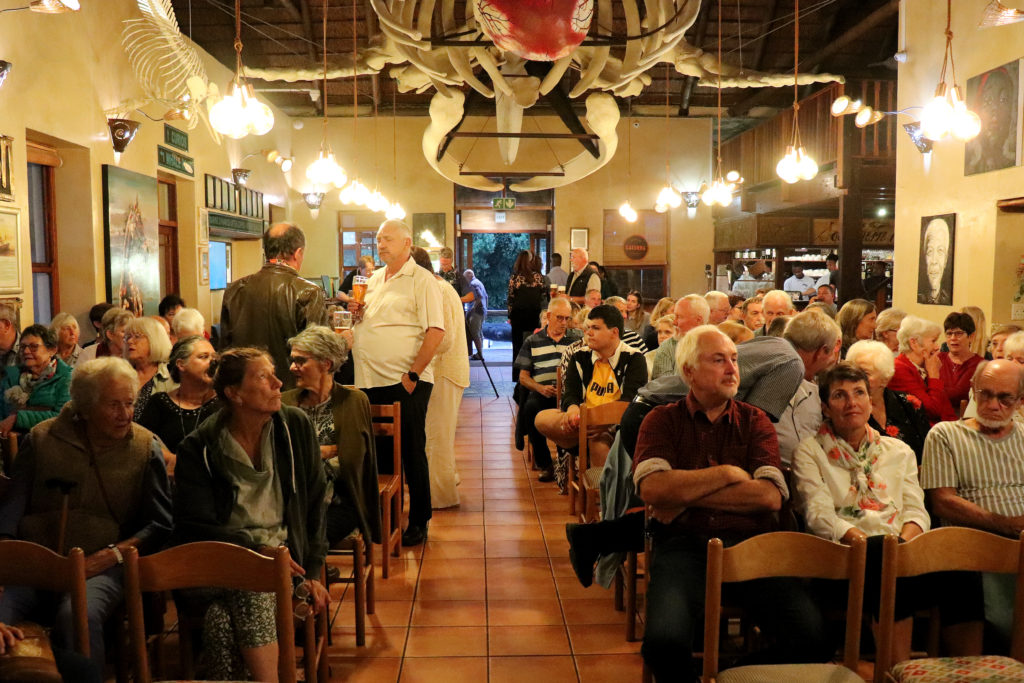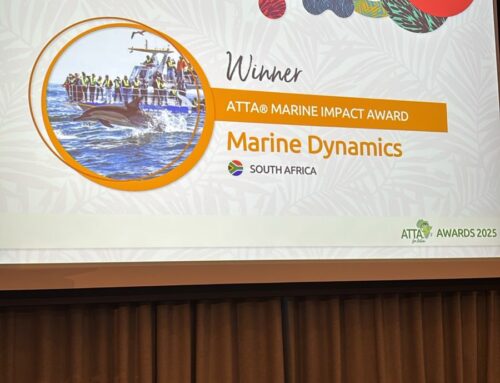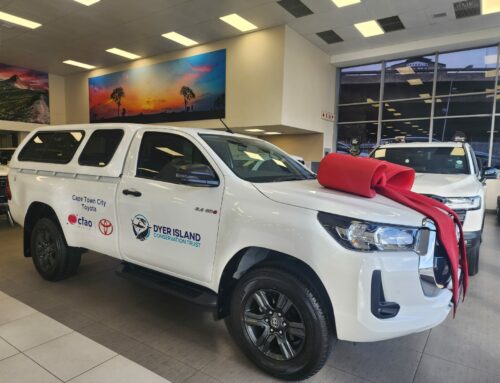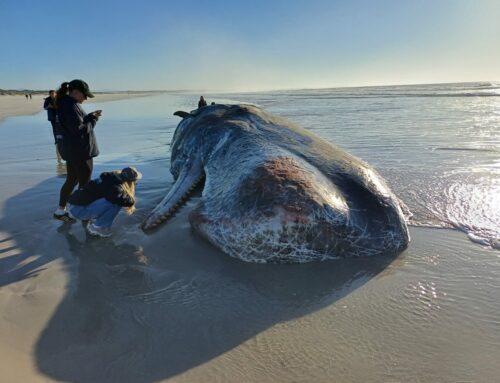If you ever get lost at sea or in the desert, the two men you would want in your survival team – are stargazers extraordinaire Johan le Roux and Willie Koorts.
Johan is the convener of the Orion Observation Group and a well-known astrophotographer, radio amateur and satellite communication expert. Willie worked as an Electronics Technician at the South Arican Astronomical Observatory until retirement earlier this year, and even has an asteroid named after him!
These two amateur astronomers were invited to talk at the monthly Marine Dynamics Marine Evening at the Great White House in Kleinbaai.
What does the stars have to do with the oceans, you’d ask? Well, everything!
“The origins of our oceans are in the stars. Water molecules exist in the Orion Nebula and are still forming today. The nebula is composed mostly of hydrogen gas; other molecules are comparatively rare. Even so, the nebula is so vast that it creates enough water every day to fill Earth’s oceans 60 times over.” www.nasa.gov.
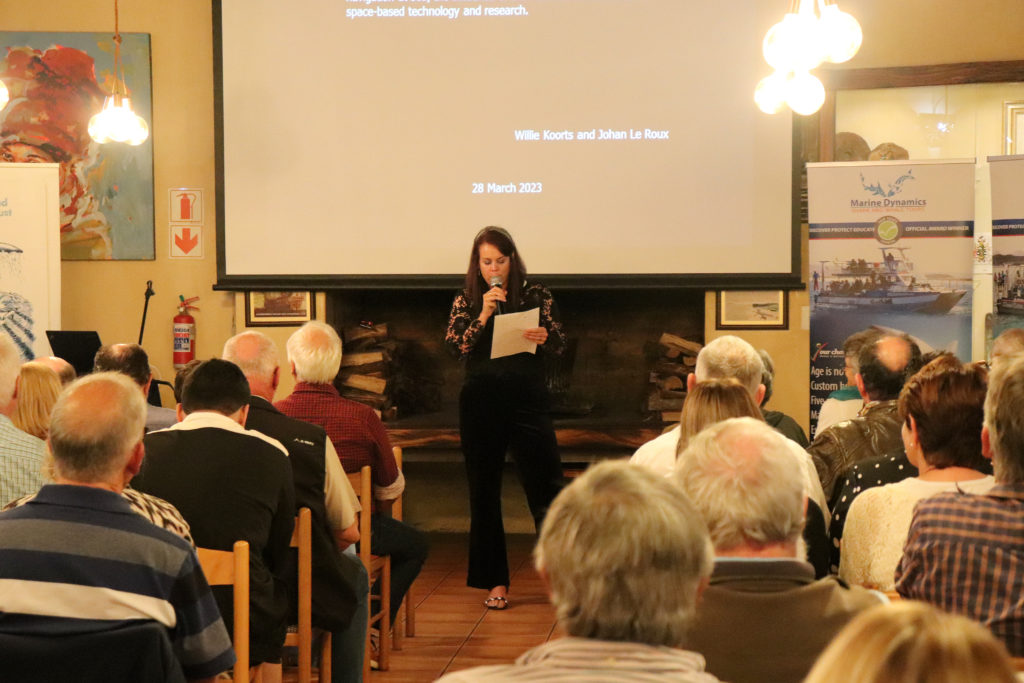
In Johan and Willie’s presentation, they explored the influence of history on navigation at sea, the influence of the Moon on the oceans, and space-based technology and research.
The audience was captivated by the history of sea navigation and amazed to learn that modern astronomy in SA began with ships (and shipwrecks!).
According to Willie, Fay Guy Tachard set up the first temporary Observatory in Cape Town in 1685.
The first permanent modern observatory in Africa, dates from 1820.
Wille explained that “the tide isn’t only influenced by the moon, but also has an effected by strong winds, high- and low pressure systems and in the mid-ocean there can be an average range of 1 meter!
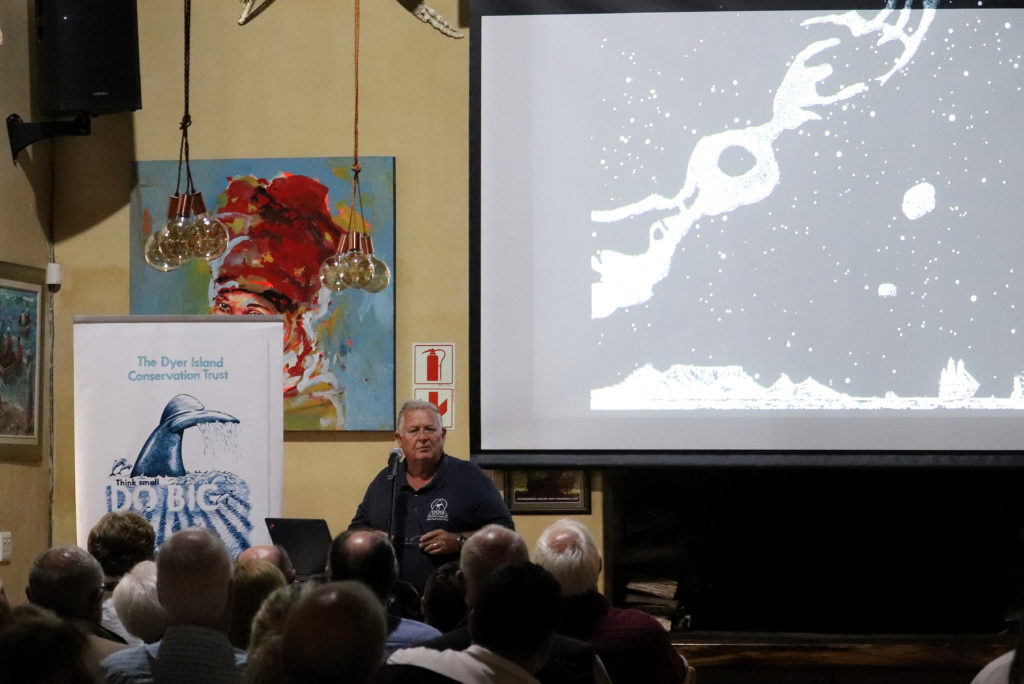
Another interesting topic discussed during the Marine Evening, was the use of satellite technology.
Johan explained the significant impact of satellites on our knowledge of the oceans. Here are some ways satellites have influenced our understanding of the oceans:
- Oceanography: Satellites can measure ocean surface temperature, salinity, sea level, and ocean currents. These data have enabled oceanographers to study and understand ocean processes on a global scale.
- Marine ecology: Satellites can track the movement of marine animals, such as whales, sharks, and sea turtles, providing insights into their migration patterns and behavior.
- Climate studies: Satellites have helped scientists monitor changes in sea level and sea ice, which are crucial components in the Earth’s climate system.
- Weather forecasting: Satellites provide real-time data on ocean conditions, such as temperature, currents, and waves, which is crucial for weather forecasting and predicting severe weather events.
- Navigation and shipping: Satellites are used for navigation and communication by ships and other vessels. This technology has increased safety at sea and helped to reduce the environmental impact of shipping.
- Overall, satellites have revolutionized our ability to observe and understand the oceans, providing valuable data that can be used for a wide range of purposes, from scientific research to commercial applications.
For more information on this fascinating topic of astronomy, watch this Marine Dynamics Marine Evening with Johan le Roux and Willie Koorts: https://www.youtube.com/live/tawM1yW2Jis?feature=share
